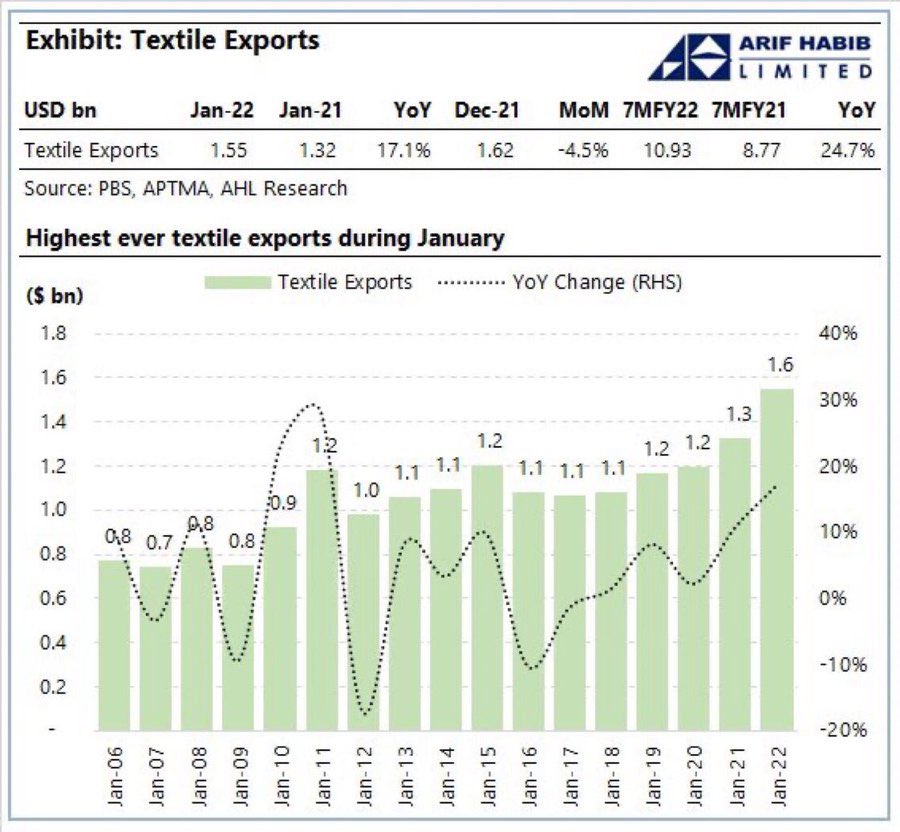In January 2022, Pakistan exported the highest textile exports in a single month in the history of the Pakistan.
Textile exports reached 1.55 billion dollars, which shows a Year-on-Year increase of 17%.
The total volume of textile exports in 7 months of Fiscal year 2021-2022 has increased by 25% to 10.93 billion dollars against only 8.77 billion dollars in 7 months of fiscal year 2020-2021.

Earlier, The textile sector is supporting the country’s flailing economy as exports are set to jump to a record high. Because Pakistan gained an edge over South Asian rivals during the pandemic.
Adviser to Prime Minister on Commerce Abdul Razak Dawood said in an interview.
He said that textile exports expected to surge 40% in fiscal year 22 to $21 billion. It will be a record level for Pakistan.
Dawood predicted that the figure would expand to $26 billion in the next fiscal year, surpassing the total exports of fiscal year 2020-21.
Textile Industry of Pakistan
The textile industry supplies everything from knitwear and garments to denim jeans to buyers in the US and Europe. Textile Industry is one of the country’s few economic bright spots. The share of textile items in Pakistan’s total exports stands at 60%.
Adviser to Prime Minister on Commerce Abdul Razak Dawood said:
“A lot of orders shifted from Bangladesh and India to Pakistan during the pandemic. The other good thing is that we are now becoming competitive with Bangladesh. While 3, 4 years ago, Bangladesh was really beating us”.
The government also plans to announce a proposal next month, which will likely provide incentives for exports to new markets such as Africa, South America and Central Asia, he shared.
The government was doubling down on efforts to boost textile exports through diverse measures including tax breaks, cheap loans and streamlining electricity tariffs, Dawood said.
Furthermore, He was of the view that nearly 60% decline in the rupee against the US dollar since 2018 also helped.
“Pakistan’s exports have turned competitive over the past few years,” said Ismail Iqbal Securities Chief Executive Officer Ahfaz Mustafa.
Moreover, He added “there is a fixed energy tariff regime that keeps in view the regional prices. The government is quick to refund the money it owes to exporters and there has been mammoth currency devaluation.”
According to Mustafa, the country is looking to increase exports to get out of the regular boom-bust economic cycle, which has forced it to seek International Monetary Fund (IMF) programmes 13 times since the late 1980s.






